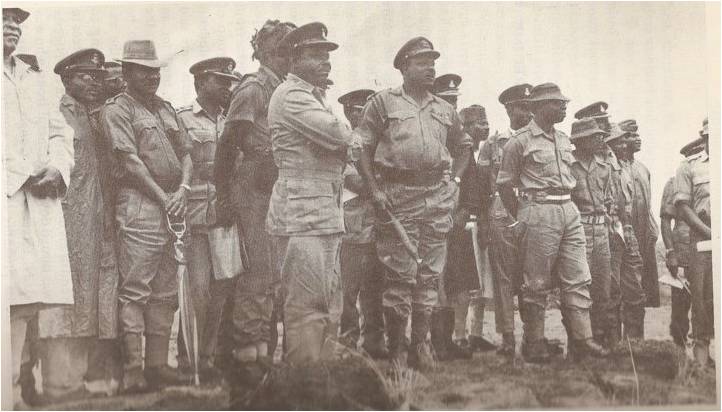Obstacles in Nigeria's path to independence.
The big size and population of Nigeria. Its population of between 35-40 millions wasn't easy to mobilise.
Religious differences whereby the northerners were Moslems and ascribed to Islamic culture while the Southerners were largely Christians.
Tribalism whereby the northern region was occupied by Hausa-Fulani, the western region by the Yoruba and the eastern region by the Ibo.
The 1963 population census fuelled regional tensions and contributed to the war.
Dictatorship. The federal government under Sir Abu Baker Tafawa Balewa's premiership started persecuting its opponents.
Wrangles for power in the Western region also contributed to the civil war.
The unfair arrest of' chief Awolowo led to civil strife.
Competitions for jobs also contributed to the civil war. Both the educated Yoruba and Ibo stiffly competed for civil service posts and job promotions.
The rigging of elections. The first post-independence elections of 1964/65 were highly rigged in favour of Northern politicians.
The January 1966 coup contributed to the civil instabilities in Nigeria.

The issuing of decree number 33 and 34 on 24th May 1966 by Maj. General Ironsi led to political instabilities.
The vast size and population of Nigeria made the civil war inevitable.
The Nigerian workers' strike of 1964 also contributed to civil instabilities.
The declaration of the Biafran state on 30th May 1967 was the immediate cause of the civil strife in Nigeria.
Discontent in the army also led to political instabilities. The Nigerian army tried to maintain professionalism but the politicians later divided it.
Imperialism was the major obstacle to independence achievement in Nigeria". Discuss
Preamble: Definition of imperialism, analyse the role of imperialism vis-avis other factors in delaying independence achievement in Nigeria. Standpoint is needed.
Points to consider: Imperialism already defined. Nigeria was a British colony; it got independence in 1960 under the NCNC- NPC coalition
National Movements and New States in Africa